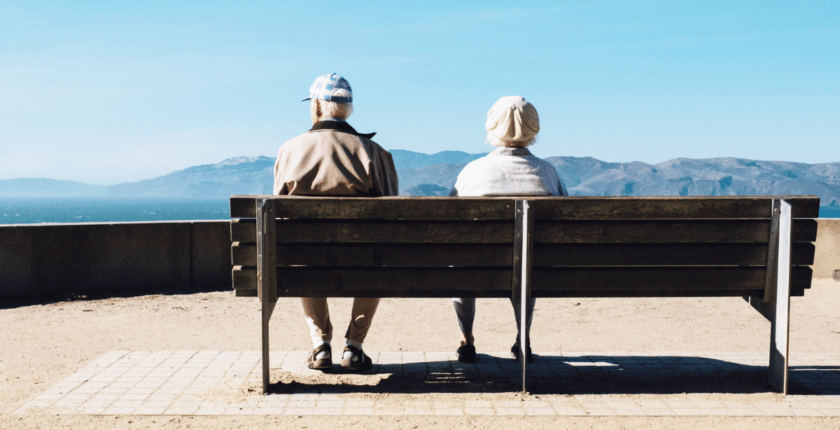Cleaning In Retirement Homes And Aged Care Facilities
Getting older is awesome, but it does come with challenges, and elderly people often have difficult decisions to make about their living arrangements. Whether it’s health issues or difficulties keeping a clean house that’s clutter free, the art of living starts looking suspiciously like a science.
Massey University says that in 2018 the median age of New Zealanders was 37,4 years- an increase from 35.9 years in 2006. And the 12.3% proportion of the New Zealand population of people aged 65+ years in 2006 grew to 15.2% by 2018. They project that this sector will almost double to 1.37 million people by 2043 and represent 23.1% of the total population.
This leaves over a million people who could be relocating to aged care facilities, retirement homes, retirement villages, or resorts, changing living arrangements to assisted care, or moving in with their families. It’s a daunting thought, and many retirement arrangements revolve around the care that the elderly require.
Cleaning is a big part of the quality of care. In the 687 aged care residential services businesses reported by IBISWorld – an increase of 3%, the daily activities often start with cleaning schedules.
Cleaners Working In Aged Care
As Kiwis get older, they need more help in their homes. Initially, a helper is often engaged from the pool of available cleaners, and as health deteriorates, the hard decision of moving into a retirement village or aged care facility must be faced.
Even in these facilities, many of the cleaners and care staff are sourced from people willing and able to do the job. As New Zealand has a large educated and sophisticated population, there are a limited number of local people willing or able to undertake work that is physically demanding and can be mentally taxing. Many have an aptitude for working with elderly people, and some locals volunteer or take up temporary employment while studying, or looking for other opportunities. A big part of the cleaning labour force comprises immigrants.
Thankfully, this is a good thing. Cleaners come to New Zealand looking to make a better life for their families. A large number of people, for example, come from the Pacifica islands and it is part of their culture to be respectful and loyal. Their inherent culture lends itself to working with older people, and it’s a win-win. They get to look after their families, and Kiwis find that their cleaning needs can be taken care of. It does take some effort to find ways to communicate effectively, but some tolerance and a little understanding of where each person is coming from go a long way.
The New Zealand government provides resources on how to Live and Work in NZ and at CleaningNZ we have a Facebook page dedicated to cleaners looking for a job.
Aged Care Cleaning Services Auckland
Whether it’s in-home care, home cleaning services, retirement villages, or aged care, basic cleaning will always involve cleaning, sweeping, mopping, and keeping areas clean and tidy. But in aged care, there are special requirements that may extend to laundry, basic first aid, and tasks that the elder is no longer able to do.
Personal hygiene can be part of cleaning but must be handled with care. There is a distinct line between the work of a health care assistant and a cleaner, so it’s necessary to be clear about the duties a cleaner will be obliged to perform. Parties need to both feel comfortable with each other. Often home cleaning services will be able to offer trained cleaners who are aware of special needs, and have the duties covered in their contracts.

Cleaner Aged Care Jobs in New Zealand
The level of care required must be thought through carefully. Higher care levels (such as dementia, and psychogeriatric conditions, or issues that require hospitalisation) need specialised care by registered nurses (RNs). Intermediate care may also involve caregivers or healthcare assistants (HCAs). None of these should be expected of the cleaner.
Aged care cleaner jobs are not just cleaning jobs to be performed as usual. Old people deserve respect and cleaners will need to find ways to work within their space, without causing unnecessary disruption. We all get older at some point, and as we do, it becomes more important to enjoy inner peace, without the hustle and bustle of daily life.

Having set routines and timetables help cleaners and their employers to find a way to accommodate their clients and maintain a respectful relationship. More meaningful relationships can also develop as the cleaning lady can easily become a companion or confidant. This can be distracting for the cleaner so clear communication is as crucial as finding the right cleaner.
And bear in mind that you too will one day be in the 23.1% of the population who is 65+.
TAKEAWAYS: Not Just Everyone Can Clean Retirement Homes And Aged Care Facilities
- In New Zealand in 2018, people aged 65+ years made up 15.2% of the total population. This is expected to grow to 23.1% by 2042, making this a large sector.
- Cleaners working in aged care are local people, temp workers, and immigrants- but not everyone is cut out for this work.
- For the elderly, the cleaner is more than just a cleaning lady.
- Communication, understanding, and tolerance on all sides make for a good working relationship.
- Cleaners’ duties and responsibilities must be clearly defined and included in their work contract.
- Cleaners are not healthcare workers and vice versa. It’s important to know the difference.
- Cleaning services can offer trained staff, and independent cleaners are looking for jobs on CleaningNZ.


